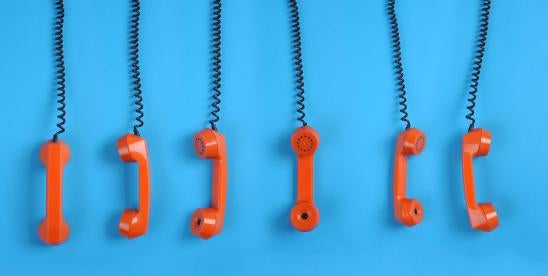FCC Tower Enforcement
Last week, the FCC’s Enforcement Bureau released an Order that adopted a Consent Decree resolving an investigation into whether Johnson Towers Corporation failed to install lights on two antenna structures and update registration information reflecting the dismantlement of a third tower. The company admitted it violated the FCC’s antenna structure registration rules and agreed to pay a modest fine of $3,000, but it also agreed to pay an additional $231,000 civil penalty “if the Commission finds that it failed to comply with the antenna structure rules during the next three years or misled the Commission regarding its current financial status.”
FirstNet Update
In a recent Briefing Update to the National Governors Association, FirstNet confirmed it remains on track to release its final Request for Proposal (RFP) next month. Interested parties will be able to submit RFP-related questions to FirstNet through February, and FirstNet plans to answer those questions in March. Though subject to change, FirstNet indicated that final responses to the RFP will be due by the end of May.
National Emergency Address Database RFP
Last month, the 911 National Emergency Address Database, LLC released a Request for Proposal to select a vendor to administer the National Emergency Address Database (NEAD). The NEAD will be a national database that registers and stores location information from access points (ex. Wi-Fi hotspots) and beacons (ex. Bluetooth) that can be accessed by wireless service providers to pinpoint the location of a wireless caller in an emergency. The NEAD is critical to implement the 911 wireless location accuracy rules adopted by the FCC earlier this year. Interested parties must confirm their intent to respond to the RFP by November 16 and submit a response to the RFP by December 18.
Wi-Fi Blocking Enforcement
Last week, the FCC issued a Notice of Apparent Liability proposing a penalty of $718,000 against M.C. Dean, Inc., an electrical contracting company, for “interfering with and disabling the operation of consumers’ Wi-Fi devices at the Baltimore Convention Center.” The NAL alleges the company blocked the personal mobile hot spots of visitors and exhibitors at the Convention Center during 10 events covering at least 26 days. In a similar proceeding, the FCC issued a Notice of Apparent Liability proposing a fine of $25,000 against Hilton Worldwide Holdings, Inc. for failing to cooperate with the FCC’s investigation into whether Hilton illegally blocked Wi-Fi hotspots of guests at its hotel in Anaheim, California.
Continuous Operation Requirements
Recent press reports indicate that the drop in oil prices has led several oil and gas companies to suspend some domestic exploration and production operations. Companies planning to suspend operations that include FCC-licensed facilities should do so with an understanding of the Commission’s rules requiring ongoing operation. For instance, a land mobile license is automatically canceled by the FCC’s rules if the authorized system has not been operated for a year or more. Similarly, a microwave license could be voluntarily forfeited if a licensee removes or alters the facilities, thereby rendering the station not operational for 30 days or more.






 i
i

